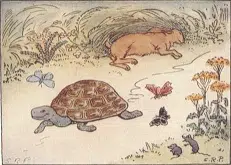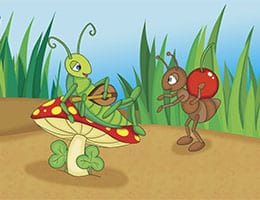 A moral is a teaching that emerges from a fable , a story or another type of story. It is a lesson that generally aims to spread moral values .
A moral is a teaching that emerges from a fable , a story or another type of story. It is a lesson that generally aims to spread moral values .
In the etymology of the word we find the term "moral" (which refers to customs and willpower) and the suffix "-eja" (which indicates a relationship of belonging). If we delve into the result of the lexicon, we could conclude that its meaning is to emphasize the instrumental nature of the stories to collaborate with the moral growth of those who listen or read it.
Moral stories usually include simple, linear characters, without great complexity. In this way, the reader/listener does not have difficulties in understanding the meaning of what is narrated or in grasping the message that is intended to be transmitted. Traditionally, in fact, these texts used to conclude with the phrase "The moral is:..."
The fable of the grasshopper and the ant , attributed to the Greek Aesop , is a good example of a moral work. The narrative presents an ant who, during the summer, works very hard to gather food, while the cicada enjoys the warmer season singing and having fun. When winter comes, the cicada has no food and decides to ask the ant for help. The latter, fearing not having enough resources for both, chooses not to provide assistance.
The moral of the fable of the grasshopper and the ant is clear: work and responsibility are rewarded , while laziness has negative consequences . The hardworking ant will be able to survive through the winter and continue with its life, unlike the lazy cicada.
Another well-known fable with a moral stars a tortoise and a hare . The two animals decide to compete in a race and, at first, the hare gains a great advantage. Convinced of her imminent triumph, she chooses to rest for a while and ends up falling asleep. The turtle, meanwhile, advances slowly but never stopping. When the hare wakes up, the tortoise is already about to cross the finish line and that is why the slowest specimen ends up winning the competition. The moral: perseverance allows you to achieve your goals and arrogance is harmful .
The story of morals
 In every moral there is an attempt to break certain attitudes of rejection towards those who are different or live in a way that does not conform to what the world considers "normal." For this reason, avoiding prejudices and the repetition of stereotypes is one of the fundamental objectives of these stories with a message. Through empathy towards a series of unusual characters, readers can identify with them and understand their own reality to gain a broader vision of the world around them.
In every moral there is an attempt to break certain attitudes of rejection towards those who are different or live in a way that does not conform to what the world considers "normal." For this reason, avoiding prejudices and the repetition of stereotypes is one of the fundamental objectives of these stories with a message. Through empathy towards a series of unusual characters, readers can identify with them and understand their own reality to gain a broader vision of the world around them.
Throughout the history of humanity these stories have enjoyed great prestige. At the beginning of civilization, when written language did not yet exist, teachings were transmitted orally using comparisons and metaphors that helped raise awareness about the behavior of the inhabitants that was considered ideal in each society. With the creation of written language and, later, the printing press, these stories were collected by literature to establish a means of teaching and learning that everyone could have access to.
Thus, through traditional stories, fiction represents caricatured or aestheticized characteristics of society. The result of these compositions is to collaborate with a deep reflection on life and social relationships and provide substantial elements for the moral growth of society.
